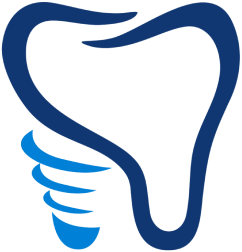
Relief From Jaw Pain and Tmd Discomfort
Jaw pain can make simple daily activities like talking, chewing, or smiling uncomfortable. In many cases, this discomfort comes from a TMJ or TMD issue. The temporomandibular joint (TMJ) connects your jaw to your skull, allowing smooth movement. When the joint or its supporting muscles don’t work properly, it can lead to tension, pain, and difficulty in movement. At Johns Creek Dental Studio, we offer personalized care to help you find lasting relief and restore natural jaw function.
Understanding TMJ & TMD Disorders
Temporomandibular disorders (TMD) occur when the jaw joint or nearby muscles become irritated, strained, or misaligned. This can cause pain that extends beyond the jaw to the neck, shoulders, and head. For some, symptoms may come and go, while others experience persistent discomfort. Getting timely treatment helps minimize long-term damage and promotes healthy joint function.
Common Symptoms of TMJ & TMD
TMD symptoms vary from person to person and may range from mild tension to severe pain. You might have a TMJ disorder if you notice:
- Jaw pain, tightness, or stiffness
- Clicking, popping, or grinding noises when moving your jaw
- Headaches, earaches, or facial pain
- Trouble chewing or opening your mouth wide
- Pressure or soreness around the jaw joint
If these symptoms sound familiar, professional evaluation can help identify the cause and guide effective treatment.

What Causes TMJ & TMD Disorders?
TMD can develop for various reasons, often from a combination of factors. Common causes include:
- Teeth grinding or clenching that strains the jaw joint
- Stress or tension that causes facial muscles to tighten
- Jaw, face, or neck injuries affecting joint movement
- Arthritis that wears down joint cartilage
- Bite imbalances or misaligned teeth increasing jaw stress
Understanding these underlying causes allows Johns Creek Dental Studio to tailor care that directly addresses your discomfort and improves long-term function.
TMJ & TMD Treatment Options
Treatment focuses on relieving pain, improving jaw mobility, and preventing additional strain. Most care begins with conservative options aimed at restoring balance and comfort.
Custom oral appliances, like stabilization splints or night guards, may be used to ease pressure and prevent teeth grinding. Your dentist may also suggest gentle bite adjustments or therapeutic exercises to relax and strengthen the jaw muscles.
For more persistent symptoms, advanced solutions such as targeted therapy or minimally invasive procedures may be recommended.
At-home care plays an important role too—simple changes like eating soft foods, avoiding excessive jaw movement, practicing relaxation, and applying warm or cold compresses can make a big difference. Over-the-counter pain relief may help, and your dentist can suggest other supportive steps if needed.


